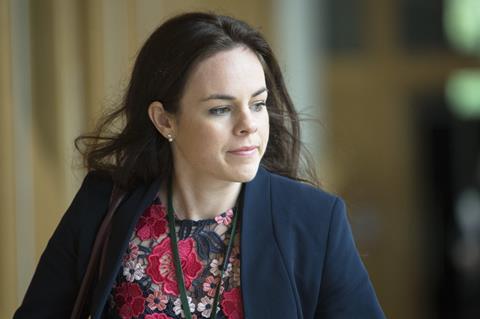Polling from Theos think tank has found half of Brits would not support someone opposed to same–sex marriage being allowed to have a top political job. Danny Webster worries the news is part of a wider trend which opposes diversity and damages democracy

We clearly have a problem navigating difference in public life.
We’ve known this for a while. Brexit broke open the charade of managerial political disagreement and exposed the fissures that run through contemporary society.
We deeply disagree about significant matters and we don’t know what to do with that disagreement.
A new poll commissioned by the think tank Theos shows that half the public think someone who opposes same-sex marriage should not be allowed to hold a top government job.
More than a fifth of the public also oppose anyone with a religious faith holding a top government job.
More people say they would stop people with religious faith than would stop those of a specifically named faith. But when a faith group was named, evangelical Christians were the most likely to be blocked (by 19 per cent, as opposed to 11 per cent for Catholics, 13 per cent for Orthodox Jews, and 16 per cent for Muslims).
While I am deeply concerned that for a minority of the public, discriminating against people with religious beliefs is considered acceptable, it is part of a wider trend that places very narrow lines on what should be allowed in public life. That is problematic because it places many people outside of the participatory life of a nation.
the risk of pushing people outside of the democratic fold is surely more problematic than their presence within
The poll also showed four issues where at least half of the public thought that views should rule people out of a top job, these being opposition to same-sex marriage, opposition to abortion, denying climate change and seeking to privatise the NHS.
While each of those are controversial, and counter to the general consensus of public opinion, the risk of pushing people outside of the democratic fold is surely more problematic than their presence within.
After Tim Farron’s experience, the treatment of Kate Forbes was at least somewhat anticipated. I look at the statistics from Theos with a sense of resignation for what it might mean for evangelicals in public life, especially for those who hold socially conservative views on abortion and same-sex marriage. While the past week has been full of Christians lamenting this trend, many have also said that this isn’t discrimination, it’s just politics working how it should. But if it is then I’m concerned that there’s something rotten at the heart of how politics works. If it means that only those who concord with majority opinion are allowed to enter then it stifles debate and reduces politics to the managerial outworkings of those who pass the conformity entrance test.
The glass ceiling for people with certain beliefs and value systems is looking more concrete and less breakable every time a situation such as this arises. The less pessimistic approach is to look at other survey results recently reported which showed only 4.7 per cent thought a candidate’s faith and personal beliefs were among the most important aspects for the next leader of the SNP, twinned with polls that showed Kate Forbes reasserting her place as the front runner to replace Sturgeon. And the possibility is that a candidate which people like, holding views that they may be unsure about, actually advances the possibilities for evangelicals in public life rather than condemn them to obscurity.
Rather than attributing beliefs to a hypothetical candidate that is easier to disagree with, voters have the chance to see how someone committed to a plural public sphere works out their beliefs in political practice. The risk is that it puts a burden on someone, and in this case specifically Kate Forbes, to carry the weight of responsibility for demonstrating that evangelical Christians can lead at the very top of public life. For good reason there is often hesitancy when someone from a minority group is seen as the figurehead - that they have to achieve so much more than others to show that ‘despite’ whatever, they succeed. So too should we take care not to place that burden unfairly in this context.
The Theos survey is a wake up call that despite our purported commitment as a society to liberalism, many want to define the operation of those liberal values very precisely and in an illiberal form. We don’t protect seats in our parliament for minority views, we don’t protect them for any minority groups. But we can recognise the benefit to all from having diversity in politics, diversity in terms of what people look like, their life experiences, but also a diversity of thought and worldview. Otherwise it starts to look like a very shallow commitment to diversity, and leads to a politics that’s too narrow and risks tripping over its own myopia.





































